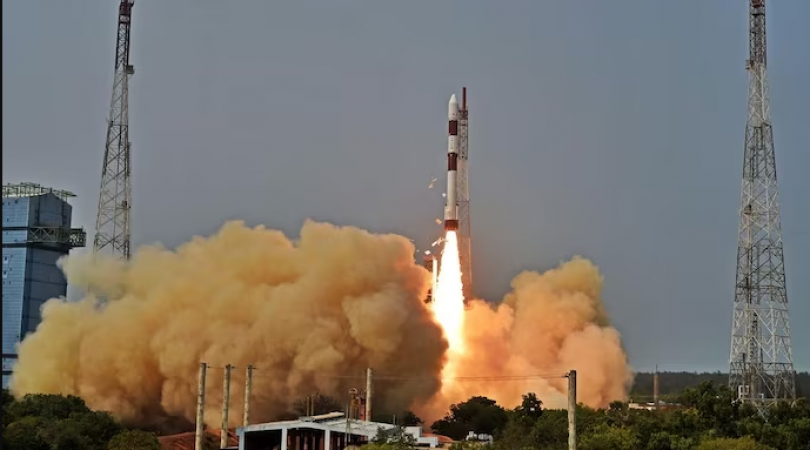
Sri Hari kota: Today, April 22, the Indian Space Research Organisation (ISRO) successfully launched the Polar Satellite Launch Vehicle C55 (PSLV-C55) mission. At 2:19 p.m. today, the third launch of the year took off from the Satish Dhawan Space Centre in Sriharikota.
Singapore's TeLEOS-2 (a Synthetic Aperture Radar satellite) was launched as the primary payload, with Lumelite-4 (a technology demonstration nano-satellite) serving as a co-passenger unit.
ISRO's third-generation launch vehicle is the PSLV. The latest PSLV-C55 mission will assist the research agency in conducting scientific experiments in orbit.
Also Read: Mark Zuckerberg has announced that Owners of disappearing messages will now be able to keep them
The primary TeLEOS-2 satellite will provide day and night coverage for all weather scenarios, imaging at a resolution of 1m full-polarimetric. Meanwhile, LUMELITE-4, a cutting-edge 12U satellite, will work to improve Singapore's e-navigation system's maritime safety, benefiting the global shipping industry.
The TeLEOS-2 satellite is a collaboration between the Singapore government's statutory board, DSTA, and the country's multinational technology group, ST Engineering.
Once deployed and operational, the satellite will support the imagery needs of various agencies within the Singaporean government. The TeLEOS-2 weighs approximately 741kg and carries a Synthetic Aperture Radar (SAR) payload.
Also Read: Google is dissatisfied with how it is lagging behind OpenAI and Microsoft in the AI race
The 16kg LUMELITE-4 satellite was developed in collaboration by A*STAR's Institute for Infocomm Research (I2R) and the National University of Singapore's Satellite Technology and Research Centre (STAR).
The satellite will be used for a technological demonstration of I2R and STAR's scalable satellite bus platform's high-performance space-borne VHF Data Exchange System (VDES), a communication payload.
During the fourth stage of the launch, the PSLV Orbital Experimental Module (POEM), which is part of the PSLV-C55 mission, will conduct scientific experiments in orbit.
Seven non-separable payloads from ISRO/Department of Space, Bellatrix, Dhruva Space, IIST, and the Indian Institute of Astrophysics will be used as a "stabilised platform" to conduct scientific experiments from the launch vehicle's fourth (PS4) stage.
Also Read: Chris Messina the creator of hashtags leaves Twitter
As soon as the third stage of PSLV-C55's third stage separates the satellites, this fourth (PS4) stage will be used as a platform for experiments. The ground command will start the non-separable payloads after the primary and co-passenger satellites have been separated.
The solar panel mounted around the PS4 tank, which will be deployed once the stage reaches stability, will supply the payloads with the necessary energy.